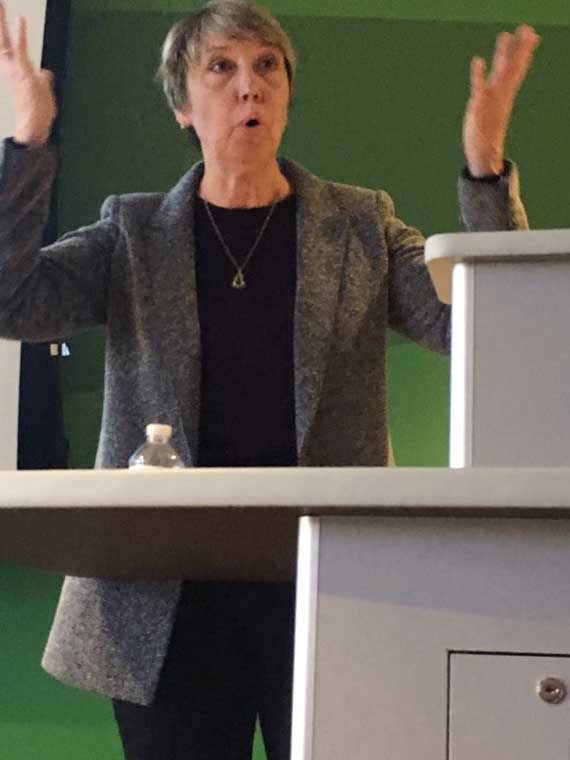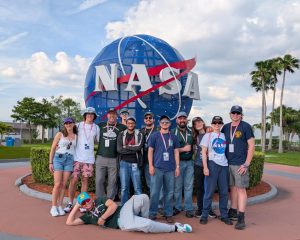“It’s not Putin’s fault.”
Russian Professor Victoria Zhuravleva on Russia-U.S. relations
Victoria Zhuravleva during her presentation
November 14, 2017
Despite reiterating claims of Russians’ support for then-candidate Donald Trump, a Russian professor, Victoria Zhuravleva, believes the Kremlin did not meddle in America’s 2017 presidential election.
This comes after U.S. intelligence agencies concluded that Russia meddled in the 2016 election.
“This is a result of the domestic situation in America,” Zhuravleva said.
This was the tone of Zhuravleva’s exhaustive presentation on U.S.-Russian relations during a visit to the College of DuPage last Wednesday. She considers November’s election as an opportunity for the U.S. to strengthen its cybersecurity.
The support for Trump’s campaign was fueled by a belief that President Trump would end sanctions imposed by former President Barack Obama. The United States under Obama imposed sanctions on Russia following the annexation of Crimea. Russia was also ousted from the G8 – a group of leading industrialized nations.
The Russian media also played a role.
“Ninety percent of the Russian population receive their information through state-controlled media. People experience foreign policies via mass media,” Zhuravleva said.
The Russian media portrayed Trump as a friendly ally. They also sought to find a correlation between his campaign and the “Russian conservative discourse.”
“This created a space for some cooperation,” Zhuravleva said. “Putin was playing his American card without any doubt.”
Zhuravleva said this allowed Putin to enhance his anti-globalist agenda. The movement is a “socio-political movement whose activities are aimed against certain aspects of the globalization process in its present form, in particular against the global dominance of transnational corporations and supranational trade and financial institutions.”
Unfortunately, for many Russians, the strained relationship between the two countries didn’t end with Trump winning last November’s contest. Trump was expected to make bilateral relations more pragmatic.
A bill that contained sanctions against Russia was signed into law although Trump considered it flawed. This has seen a major twist in the relationship between the two countries according to Zhuravleva.
“In Russia, we have had so many illusions about Trump. Now it’s clear that he acts with the ideology of hatred, violence and aggression,” said Veronika Krasheninnikova, a member of Russia’s Civic Chamber.
As an expert on Russia-U.S. relations, she also believes the relationship between the two countries is at its worst point since the end of the cold war; something she considers as a function of propaganda.
She, however, believes the two countries can work towards new areas of cooperation that include: security, the nonproliferation of nuclear weapons, et cetera.
Zhuravleva is a professor of History and International Relations, director of the program on American Studies and Vice-Dean of the faculty of International Relations and area studies at the Russian State University for the Humanities in Moscow.
Zhuravleva was on campus at the invitation of History Professor Ben Whisenhunt.
“Zhuravleva brought a fresh perspective on a hot topic, Russian-American Relations, at a time when Americans are wondering about what the future holds,” Whisenhunt said.


















